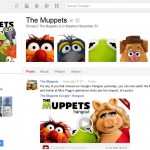Google Plus is the new kid on the block and compared to Facebook, it’s still a small kid. However, Google Plus has been gaining huge momentum in the last year that it has been available. Part of this gain has been from the fact that Google operates on so many levels within the web community and Google+ interacts seamlessly with almost all of them. Plus, it helped that Google began forcing all YouTube users to link their accounts with a Google+ profile. So even though Google+ has over 400 million users, only about 100 million are active on a monthly basis.
It might seem like a daunting task to start fresh on a large-scale social networking site considering that you’ve likely been on Facebook for so many years now, but after my experiences with Google Plus, I’m about ready to drop Facebook completely! But let’s not jump the gun completely…check out the pros and cons below to see if Google+ is right for you.
Reasons to jump ship
- Advertising – Facebook is full of it. It’s not always so apparent too. With all the adverts for game requests, sponsored links and now promoted wall posts, Facebook has become a haven for cyber junk that you are probably getting really sick of. I know I am. Now, this doesn’t mean that Google+ doesn’t have the potential for falling into the same traps, but my guess is that since Google has more than one service, they don’t need Google+ to be their cash cow. Whereas Facebook now has shareholders to answer to, it’s very possible that advertising could get worse for them.
- Integration – Facebook integrates well with other online services and websites, but it’s still a very separate platform. Google+ is basically the backbone of the majority of Google services so when you log into Gmail, you are already logged into Google+, YouTube, Drive and more! The best part is that practically all of these services are well-integrated and they cross-manipulate one another.
- Google Events – Yes Facebook has events, but they are like Google’s. On Google+, you can create an event, invite all your friends and instantly it turns into Party Mode. This feature allows all attendees to upload photos to the event which then threads them all together for everyone to see.
- Google Hangouts – Remember the days of video conferencing or webcam chats? How difficult was it to get more than two people in on the event? Well Google+ now allows live streaming events to be hosted online and joined by others and/or watched by everyone. From a business standpoint, this allows much more integration between employees and clients.
- Communities and Pages – Google+ offers users the ability to create pages for their businesses just like Facebook as well as starting their own communities like Facebook groups. The difference is that the integration is much tighter with Google+ and everything is instantly linked to search results related to your content. On Facebook, you might have to pay for advertising to get similar results.
- Future proof – Google+ is banking on long term goals with product integration and it starts with Google search. With the rise of micro-blogging and the sharing of content all over the internet, the power of Google search can only help get that content to the people. As a blogger myself, Google+ has even allowed my search results to appear next to my name and a photo to help make them stand out among the competition.
It seems that there isn’t much if anything that Google+ can’t do that Facebook can, so why would anyone not make the switch? Let’s take a look at some of the things that are holding me back…for now.
Reasons not to jump ship
- Entrenchment – There’s no doubt that Facebook is vastly more widespread than Google+ is. In fact, “facebook” has almost become a ubiquitous term for social networking, much like “google” has become for finding things online. As a result, it’s much easier to find people on Facebook.
- Vanity URLs – This might seem like such a small detail, but having the ability to tell people they can find your Facebook page by going to facebook.com/ledfrog is far more enticing than trying to tell people that they can find you on Google+ by going to plus.google.com/114683976907069457614. However, I should point out that Google has already started rolling out vanity URLs to verified celebrities and corporate brand pages. One such example is google.com/+hughjackman. The use of the little ‘+’ is also used to tag names in posts or search for people.
- Integration – Although it’s also mentioned above as a pro, Facebook does have a leg up with website integration in terms of being able to login to external websites, but that’s all starting to change.
With time, Google+ has great potential to become much more powerful than Facebook due to Google’s vast amount of services and products they have connected together. Facebook has been described has being a social network, while Google is described as being a social layer that covers many of Google’s properties.
My Two Cents
In the end of all this debate, many people (including myself) will simply continue using both. I have to because all of my real-world friends are on Facebook and very few of them are on Google+. I also have a couple of Facebook pages that already have fans attached to them, so until I see the natural progression of Facebook users moving toward Google+, I don’t plan on deleting any accounts.
But just like the pioneers of Facebook did when they left MySpace all those years ago, I plan to start really pushing Google+ to my friends as well as posting more updates there than on Facebook. If my friends want to continue following me…well, they’ll have to literally follow me over to Google.



